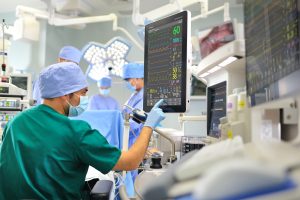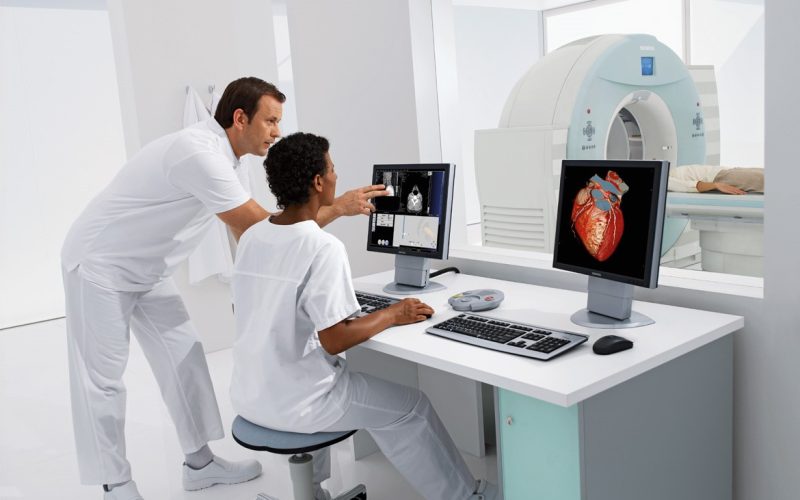Introduction
Reliable diagnostic equipment is at the core of any efficient hospital. Whether you’re managing a multi-specialty facility or a smaller care unit, the ability to diagnose accurately determines the level of care you provide. In today’s competitive healthcare market, hospitals must invest in precise, cost-effective, and compliant equipment that meets both patient and clinical needs.
This blog walks you through key categories of medical diagnostic devices, factors to consider before purchasing, and how Indian manufacturers are becoming a trusted solution in this space.
Importance of Diagnostic Tools in Healthcare
Every treatment journey begins with an accurate diagnosis. The ability to detect issues early, track disease progression, or confirm recovery depends on equipment performance. Hospitals that rely on outdated systems or imported models often face delays in service or struggle with maintenance.
A strong diagnostic setup ensures:
- Reduced errors in analysis
- Shorter diagnosis timelines
- Improved treatment decisions
- Greater patient satisfaction
- Higher trust in clinical practices
Key Diagnostic Tools Every Hospital Needs

1. ECG Machines
Electrocardiograph machines are vital for any medical center that monitors heart health. Whether it’s a general physician clinic or a specialized cardiac unit, ECG systems detect issues like abnormal rhythms, coronary heart disease, and silent heart attacks.
Key features include:
- 3/6/12-channel outputs
- Data storage and printouts
- Clear signal quality
- USB or LAN connectivity
- Rechargeable battery options
Hospitals should select ECG systems that support seamless integration into electronic health records (EHRs) for fast reporting.
2. EEG Systems
EEG (electroencephalography) machines are used for analyzing brain activity. These tools are especially useful in diagnosing epilepsy, sleep disorders, and neurological injuries.
What matters most:
- Multi-channel recording capability
- Low signal interference
- Real-time monitoring
- Analysis software for waveform study
- High patient comfort with safe electrode caps
EEG setups are ideal for neurology departments, child development centers, and sleep labs.
3. Holmium Laser Machines
In urology, Holmium lasers play a major role in non-invasive treatment of kidney stones and prostate-related surgeries. These devices use pulsed energy to break stones into fragments, making surgery less painful and recovery quicker.
Considerations when buying:
- Multiple pulse settings
- Efficient energy output
- Simple footswitch control
- Compatibility with flexible ureteroscopes
Hospitals looking to improve their urology services often find Holmium laser systems to be a practical investment.
4. Polysomnography (PSG) Devices
Polysomnograph machines are used in the diagnosis of sleep disorders like sleep apnea. They monitor multiple parameters such as heart rate, oxygen saturation, and body movement.
Look for these features:
- Long recording sessions
- Multiple sensors
- Easy report generation
- Minimal physical disruption during sleep
- Network integration for remote access
Such devices are commonly used in sleep clinics and general hospitals offering sleep disorder diagnosis.
5. TMT Machines
The Treadmill Test (TMT) machine evaluates cardiac function during physical stress. It’s a must-have for any cardiology unit or diagnostic lab focusing on heart disease screening.
Specifications that matter:
- Safety controls like auto stop
- Real-time data tracking
- Smooth belt speed transitions
- Heart rhythm monitoring via ECG sync
- Adjustable incline and duration
TMT is often performed in tandem with ECG or Holter testing for complete cardiac profiling.
Step-by-Step Guide to Choosing Diagnostic Equipment
Here’s how to make smart, budget-friendly choices when selecting hospital diagnostic tools:
1. Understand Your Hospital’s Needs
Start by asking:
- What types of diseases are most commonly treated here?
- Do we need machines for basic checks or advanced imaging?
- What departments need new equipment (radiology, cardiology, lab)?
- How many patients do we see per day?
Understanding your patient volume and specialties helps you decide what kind of machines are essential vs optional.
2. Set a Clear Budget
Medical equipment can be expensive. You need to balance:
- Upfront cost: How much the machine costs to buy
- Running costs: Electricity, technician time, space
- Maintenance fees: Servicing, parts, software updates
Also, check if the manufacturer offers payment plans, leasing options, or extended warranties.
3. Check for Certification and Quality Standards
Only buy equipment that meets your country’s health standards. Look for certifications like:
- FDA-approved (USA)
- CE-marked (Europe)
- ISO-certified equipment
These ensure the machines are safe and effective. Avoid cheaper devices from unknown brands that may fail or cause harm.
4. Focus on Technology and Features
Modern machines offer more than basic functionality. Look for features like:
- Digital displays and software integration
- Wireless data transfer
- Cloud storage options
- Low radiation settings (for X-rays and CTs)
User-friendly features also reduce errors and training time for staff.
5. Consider Ease of Use and Training
Can your team use the new machine easily? If not, you’ll need to invest in staff training.
Choose equipment with:
- Simple controls
- Clear manuals or video tutorials
- Customer support or live training from the supplier
This saves time and avoids frustration during emergency use.
6. Think About Space and Installation
Some equipment (like CT or MRI machines) requires:
- Special rooms
- Cooling systems
- Soundproofing
- Heavy-duty floors
Make sure your hospital has the infrastructure and space for installation. If not, consider portable or compact alternatives.
7. Compare Brands and Vendors
Don’t settle for the first offer. Get quotes and compare:
- Price
- Warranty
- Installation and maintenance services
- Delivery time
- Customer reviews
Also, ask for on-site demonstrations or visit other hospitals that use the same machines.
8. Check After-Sales Support
Great equipment is useless if it breaks and you can’t fix it quickly. Choose vendors who offer:
- 24/7 customer support
- Fast repair response times
- Readily available spare parts
- Free updates or upgrades
Good after-sales service can add years to the life of your diagnostic machines.
9. Think Long-Term
Technology keeps changing. Ask yourself:
- Can this machine be upgraded later?
- Will it support software updates?
- Is the brand known for long-term support?
Spending a bit more today may save you a lot in the next 5–10 years.
Tips for Small or Rural Hospitals
If you run a small or rural hospital, you may have limited resources. Here are a few smart options:
- Buy multi-functional machines that combine several features
- Look for refurbished diagnostic equipment from reliable sellers
- Consider leasing high-end machines if full purchase isn’t feasible
- Share costly equipment with other local clinics or hospitals
Popular Diagnostic Equipment Brands
While there are many brands, some trusted global names include:
- GE Healthcare
- Siemens Healthineers
- Philips Medical
- Mindray
- Canon Medical Systems
Always choose a brand known for reliability, ease of use, and customer support.
Conclusion
Choosing the right diagnostic equipment is one of the most important decisions a hospital can make. It impacts your ability to diagnose quickly, treat accurately, and care for your patients efficiently. The best tools are not just advanced—they are easy to use, fit within your budget, and come from trusted providers.
Take time to review your hospital’s needs, compare options, and invest in technology that will serve your staff and patients for years to come. The right choice today leads to better outcomes tomorrow.












